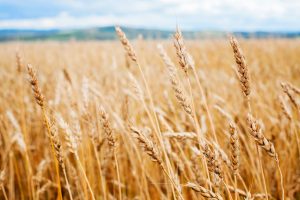By Heide Kennedy, Arizona Farm Bureau Communications Intern
We often hear mixed opinions on whether or not we should be eating or limiting our intake of grains. Some popular diets like the paleo diet or the ketogenic diet stress the importance of abstaining from grains, even whole grains, while others, like the Mediterranean diet, tout their importance. This leads us to wonder, which view of grains is correct? An article published by Everyday Health breaks down what whole grains are and what they do for our health.

What do you know about the grains you eat? (photo credit: Bigstockphoto.com)
So, what are whole grains? Whole grains are grains that are in their natural state. They have not undergone processing that takes them out of this natural state, making them refined grains. According to registered dietician Dalina Soto, “Refining is a process where they remove the bran and nutrients in it, to create a flour that is easier to cook.” Some examples of whole grains include brown rice, whole-wheat flour, quinoa, wheat berries, and oats. Some examples of refined grains include white rice and white flour.
In terms of nutrition, unlike refined grains, whole grains are chock full of vitamins and minerals, such as thiamine, folate, niacin, magnesium, iron, and selenium. Whole grains are also a great source of fiber. But unfortunately, many of those nutrients are removed from the grain when it is refined.
Some of the potential health benefits of consuming more whole grains include:
- Reduced inflammation
- Lower risk of heart and cholesterol issues
- Type 2 diabetes
- Some cancers
- Obesity
It sounds to me like whole grains can actually be a good food to consume as part of a healthy diet. So, consider incorporating whole grains into the foods that you eat. This can be easy, as there are many whole-grain options for typical pantry staples like bread, crackers, and flour.
For more health-related articles, check out more on our Fill Your Plate blog!

